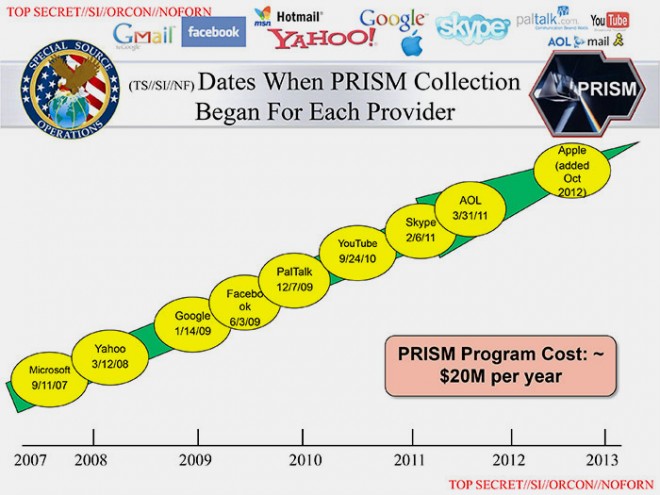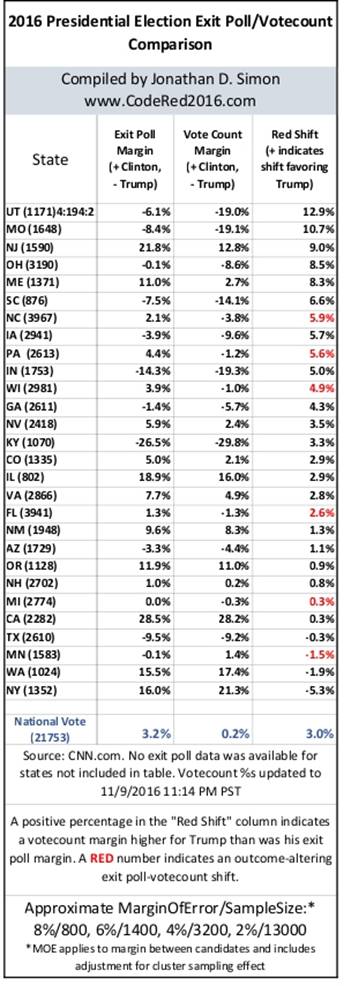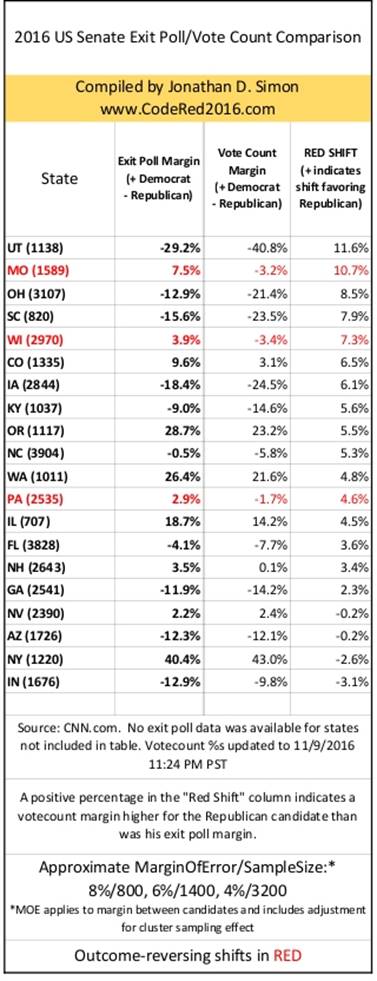Fidel Castro Dies at 90
The same people who railed against ‘political correctness’ now seem to believe there should be no criticism of their choice. You can’t have it both ways
Vote shaming, anyone?
_ _ _ _ _ _ _rump voters sure are sensitive lately. They’re upset that the cast of the hit play Hamilton made a statement to Vice-President-elect Mike Pence, and that the audience booed him. They’re displeased that their vote is costing them relationships with family and friends. And for some reason not entirely clear to me, they’re unhappy with Starbucks and decided to demonstrate as much by … buying lots of coffee at Starbucks.
The same people who wear shirts that read “fuck your feelings” and rail against “political correctness” seem to believe that there should be no social consequences for their vote. I keep hearing calls for empathy and healing, civility and polite discourse. As if supporting a man who would fill his administration with white nationalists and misogynists is something to simply agree to disagree on.
Absolutely not. You don’t get to vote for a person who brags about sexual assault and expect that the women in your life will just shrug their shoulders. You don’t get to play the victim when people unfriend you on Facebook, as if being disliked for supporting a bigot is somehow worse than the suffering that marginalized people will endure under Trump. And you certainly do not get to enjoy a performance by people of color and those in the LGBT community without remark or protest when you enact policies and stoke hatred that put those very people’s lives in danger.
Being socially ostracized for supporting Trump is not an infringement of your rights, it’s a reasonable response by those of us who are disgusted, anxious, and afraid. I was recently accused by a writer of “vote shaming” – but there’s nothing wrong with being made to feel ashamed for doing something shameful.
I suppose I should not be surprised by this reaction; people are taking cues from Trump himself, a man who feels so entitled to universal adoration that he whines about protests being “unfair”. Indeed, after Pence’s uncomfortable evening at Hamilton, Trump tweeted that the quite respectful statement from the cast was “harassment”. This from a man who has mocked a disabled reporter, encouraged violence at his rallies, and spent a lifetime denigrating women.
The president-elect even wrote that the theater should be a “safe” place. Apparently “safe space” is politically correct nonsense when women don’t want to get raped at college, but vitally important when a powerful man who advocates conversion therapy wants to enjoy a Broadway musical.
Michael Moore called it long ago.
But you already knew that.
You just didn't want to believe it.
Trump was talking to the people who were hurting. He was the human Molotov cocktail that they can legally throw into the system that stole their lives from them.
Michael Moore spelled it out quite clearly before the election:_ _ _ _ _ _ _
From the Economic Populist:
You should to try to understand why many of those who voted for Trump have been grieving for a long time. You have a job that you love and are very dedicated to. On top of that, you are a single mother, and need a job. Suppose one day your school informs you that you are being terminated, replaced by a cheaper foreign national on an H-1B work visa. (In fact, there are many H-1B teachers.) Moreover, you discover after losing your job that, in spite of the fact that you have much valuable experience, good recommendations from employers and so on, no one wants to hire you. In fact, very few employers even grant you interviews.
I know many people who have had exactly that experience. They are mad and frustrated, and feel that neither major political party cares about them one whit. Then someone like Trump comes along who has a written platform that promises to tighten up H-1B policy, and who even invites a displaced programmer to speak at one of his rallies, while Hillary has basically said she would make H-1B policy even more liberal, rather than tightening it. The vast majority of people I know like this voted for Trump. And by the way, they are a diverse, educated group, not the white males without college degrees that the media has portrayed them to be.
_ _ _ _ _ _ _
Not that I am so sanguine about the coming Trump administration. The theme of my posting last night was in essence, Will Trump “dance with the one who brung him”? Will he remember the Little People or side with the Big Banks? Obama failed the Little People who voted for him; instead of Change he brought us Larry Summers. I’m sure many people who voted for him are merely cautiously optimistic. But I’m also sure Trump’s statement to inner city blacks, “What the hell do you have to lose [by voting for me]?” resonated with many voters, from all walks of life._ _ _ _ _ _ _
Who What Why knows propaganda:
The corporate news media’s propaganda has had real consequences. Just as Hillary supporters were lulled into complacency by the media’s uninformed reporting, President Barack Obama could sit back because he was lauded for saving an economy that was actually continuing to deteriorate for tens of millions of families._ _ _ _ _ _ _
Late last year, in places like Ohio and Wisconsin, there were signs that things on the farm were slowing down, as China’s troubles and a drop in commodity prices threatened to turn America’s farm boom into a bust.
Yet in recent years, as Wall Street was made more than whole, the big banks that were too big to fail got bigger and small community banks got gobbled up.
A similar disconnect happened overseas, as the corporate news media ignored the deteriorating situations on the ground in Iraq, Afghanistan and Syria. This persisted until the news giants had the visuals they needed — the phalanx of ISIS fighters, black flags flying.
Even as Obama dismissed ISIS, the group was successfully redefining national boundaries that the US had spent trillions of dollars trying to defend, losing thousands of its own soldiers in the process, and wreaking havoc on civilians and the landscape.
Similarly, the same news outlets missed the growing fatigue of our military families who had endured multiple tours in America’s longest war.
Lost along the way were expectations that furthering the common good or promoting human virtue, not simply expanding the economic pie, might figure among the immediate aims of political economy. On the weekend before Election Day, Ross Douthat wrote in the New York Times that “technocratic and secular liberalism may simply not be satisfying to a fragmented, atomized society.” He got that right. Indeed, he might have gone further: the technocratic and secular liberalism embodied by Hillary Clinton has actually exacerbated the fragmentation and the atomization of society, even if elites (until now) were slow to take notice.
In the run-up to the 2016 election, observers without number described it as the most important in recent memory, if not in all of U.S. history. In fact, however, a Hillary Clinton victory, assumed as all but automatic, would have drained the election of significance.
Clinton’s supporters looked forward to the prospect of the first woman president as an achievement of cosmic importance. Of course, a half-century ago many attributed comparable significance to the election of our first Catholic president. Yet note that today John Kennedy’s religious affiliation figures as little more than a footnote to his presidency. So too, I suspect, the novelty of having a woman in charge of the White House would have worn off within weeks. At that point, rather than the president’s gender, the been-there, done-that quality of her thinking would have attracted notice.
In that respect, rather than a turning point, installing a second Clinton in the White House would have constituted a postponement of sorts, Americans kicking four years further down the road any recognition of just how bland and soulless their politics had become.
Small-Town "Terrorists": The Infamous Post-9/11 "Sleeper Cell" Case in California Continues to Unravel
By Abbie VanSickle, The Intercept
Shortly after 9/11, the FBI hired Naseem to spy on a mosque in California, and he subsequently became the government’s star witness in the trial of Hamid Hayat, a hapless cherry packer accused of being a member of an al Qaeda sleeper cell in rural America. When Naseem’s mother read about her son’s role as an informant, she wrote a letter to Hayat’s lawyer saying that Naseem was “a bagful of lies.”
Shaheen has never spoken publicly about her son and his crucial role in one of the most infamous terrorism trials of the post-9/11 era, but not long ago she agreed to talk with me. We met at her home, and because her community does not know what her son did in the case, I agreed to use only her maiden name.
“I’m convinced that Naseem is a deceitful character,” she told me. “What he did with Hayat is so deceitful. It’s an injustice, the fact that it seems to me that he again deceived a family by taking them into his trust.”
A mosque under surveillance. An FBI informant with a troubled past. A young American Muslim accused of traveling to a far-off place to train for terrorism. The Hayat case began in the fragile weeks after 9/11. Now, as President-elect Donald Trump prepares to take office, the case has new resonance. Trump has demanded that Muslims inform on one another. He has threatened to kill terrorists’ families. He has promised to waterboard and torture terrorism suspects.
The country first heard the story of Hamid Hayat in the summer of 2005, when the FBI announced that it had broken up an al Qaeda sleeper cell in Lodi, California. Hayat was the son of an ice cream truck driver, and he was repeatedly described by family and acquaintances as an idle young man whose mental capacity had been slowed by a nearly fatal bout of meningitis. His arrest immediately brought the national media to the small city, choking its usually calm streets with television trucks. A CNN headline blared “FBI: Al Qaeda plot possibly uncovered,” and warned that the plotters were “trained on how to kill Americans.” It was one of the most frightening cases of terrorists in America since 9/11, and much of the media treated the FBI’s charges with little skepticism.
At Hayat’s trial the following spring, a jury heard testimony by Naseem Khan, who was paid to inform on Lodi’s mosque. The jury deliberated for nine days before convicting Hayat of material support to terrorism and lying to the FBI. At the start of a press conference, U.S. Attorney McGregor Scott celebrated the conviction by pumping his fist in the air, local press reported. A federal judge sentenced Hayat to 24 years in prison. The Hayat case was a test for a controversial new government strategy of pre-emptive prosecution — a strategy that centered on using paid informants to coax terror suspects into making statements about what they might do someday — and it appears to have been deeply flawed.
And here's another cogent thought in a time of immense corruption and on-going wars:
Donald Trump's Dangerous Team of Crackpots Will Spread Corruption and Start New Wars in the Middle East
By Patrick Cockburn, "The Independent"
19 November 16
Foreign policy advisor John Bolton proposes carving out a Sunni state in northern Iraq and eastern Syria. As a recipe for deepening the conflict in the region, it could scarcely be bettered._ _ _ _ _ _ _
How a Battle Over Affordable Medicine Helped Kill the TPP
By James Trimarco, YES! Magazine
19 November 16_ _ _ _ _ _ _
The debate about an exotic new kind of drug delayed the trade deal for years, thanks in part to relentless advocates who stood up to big pharma.mid the fallout from Donald Trump’s election is the end of the Trans-Pacific Partnership. After six years of negotiations, the controversial trade deal is dead.
Its proponents were caught off guard. Just a week before the election, U.S. Trade Representative Michael Froman was telling CNBC that members of Congress were ready to pass TPP right after the election. “If they bring it forward,” he said, “I think we can get the votes there.” But Trump had made withdrawal from TPP a cornerstone of his campaign. After his victory over Hillary Clinton, Republican leaders in Congress made it clear that the deal was going nowhere.
That’s a serious setback for President Barack Obama, who was its highest-profile advocate. “This will end up being the most progressive trade bill in history," Obama said last year. “It will have the kinds of labor and environmental and human rights protections that have been absent in previous agreements.” Yet, hardly any labor or environmental groups supported it. The AFL-CIO federation of unions and the Sierra Club, for example, were outspoken opponents.
Less well-known is the small, international group of affordable-medicine advocates who undermined its passage in a years-long drama that pitted consumer advocacy against corporate interests. By relentlessly pointing out how proposals by the United States Trade Representative would hike drug prices, says Brook Baker, a professor of law at Northeastern University who’s written widely about trade, those advocates helped delay the deal long enough to make it vulnerable to political attack.
“If this had been brought up two years ago, [Congress] probably would have passed it,” Baker says. “One of the sticking points was intellectual property — and that was mainly over concerns about access to medicine.”
The health advocates Baker is talking about—groups like Doctors Without Borders, Public Citizen, and Oxfam—didn’t have a seat at the negotiating table. And they couldn’t see the deal’s secret text. But by allying themselves with other countries in the partnership, they were able to build trust among people who did have seats. Then, they provided information and did whatever they could to shore up resistance among negotiators.
“At each round, civil society went and found out what was on the table, and got negotiators who were thinking alike to talk to each other,” Baker says.
It was February 2011, and Peter Maybarduk was in Santiago, Chile, for round five of negotiations for the TPP. He works for Public Citizen, a D.C.-based advocacy organization, where he directs a group that focuses on fair access to medicines. By that time, he says, he’d pretty much given up on changing anyone’s mind on the U.S. side. But he was hoping he could help persuade the negotiators from other countries not to sign off on a deal he thought would increase the cost of health care for their people.
The negotiations were being held at a law school, but only trade ministry representatives and other government officials were allowed in. Representatives of civil society, like Maybarduk, had to wear special badges and stay out of the rooms where the deal’s secret text was being hammered out.
That left Maybarduk and other advocates wandering the halls, hoping to grab a Vietnamese or Peruvian negotiator and pull them aside for a chat. Trying to influence the process in this way could get dicey. Maybarduk remembers infiltrating a presentation given by officials in the Chilean government, when someone with the U.S. contingent said something like, “I thought only trade representatives were allowed in here.” He pointed at Maybarduk and said, “He’s not.” Outed, Maybarduk got up and left the room.
Days later, he had a breakthrough. Together with allies from other groups, he put together a lunch for the negotiators, most of whom showed up. There, he gave a presentation explaining how a provision in a leaked chapter of the deal was likely to encourage patent abuse and drive up the cost of medicines. “At this point, the negotiators were not sure what their relationship with us should be like—if they should be talking to us, if we were going to antagonize them,” Maybarduk says. “That presentation showed them there might be some information that would be really useful.”
Those relationships would come in handy in the years to come. By May 2012, Maybarduk’s team had helped to create an environment in which chief negotiators from Vietnam and Chile felt comfortable speaking publicly about the need for affordable medication in terms that went directly against the U.S. positions.
And the impact went beyond just talk.
Provisions the United States Trade Representative wanted in the deal started getting thrown out, according to observers’ accounts and leaked versions of the text. The U.S. had wanted rules saying that bioengineered varieties of plants and animals should be patented. It had wanted to allow companies to get new patents for slightly tweaked versions of existing medications—a process known as “evergreening.” And it had wanted to automatically block generic drug applications if a patent had been claimed, regardless of the validity of the patent.
One by one, the U.S. relented on those. But there was one demand it would not give up: the ability to guarantee intellectual property rights worth billions of dollars for the makers of a new and expensive class of drugs.
On September 22, Zahara Heckscher received a letter from Blue Cross Blue Shield. Its dense legalese made it hard to follow the details, but the gist was clear: Her doctor’s request on her behalf for two cancer medications had been denied.
Heckscher, who had been diagnosed with advanced breast cancer a few years earlier, says she was shocked by the rejection. She had been through all kinds of treatments. She knew the disease ran in her family; her mother and aunt had died from it when they were in their 40s. But her doctor kept trying.
Heckscher waited for 10 agonizing days, during which she says she could feel her lymph nodes swelling under her arms. She was terrified. “Every time you forget a word, you think The cancer’s in my brain. My son’s 11, and I wonder, Am I going to be there for his 12th birthday?”
In the end, the insurance company reversed its decision and agreed to pay for the two drugs: Herceptin and Perjeta. Together, they cost about $115,000 for a year’s treatment.
Why were the drugs so pricey? The answer, it turns out, had to do with the intellectual property debates that were holding up the Trans-Pacific Partnership.
The drugs are biologics, an important and growing class of medication. Although only 2 percent of the population in the U.S. uses them, they account for 40 percent of spending on prescription drugs.
Biologics are something relatively new in medicine. Most traditional treatments consist of relatively small molecules; you can draw the chemical structure for ibuprofen, for example, with just a hexagon and two small, branching lines. The complex molecules that make up biologics can be hundreds, even thousands, of times larger—and, unlike traditional drugs, they’re manufactured within living cells.
The most promising new treatments for cancer and arthritis are biologics.
“It feels like a miracle,” Heckscher says. “The medicines go right where they are supposed to go in my body, without the side effects of chemo.”
But research and design for a single biologic medication can cost billions of dollars. The industry is concerned that companies won’t get a return on that investment if they’re undersold by lower-priced, generic versions of the drugs—known as “biosimilars” because biologics can’t be copied exactly. The industry’s preferred solution is so-called “exclusivities,” which effectively give the original manufacturer of the drug a legal monopoly for a certain period of time. That’s in addition to patents, which drug companies feel don’t sufficiently protect biologics. (The trade groups PhRMA and BIO declined to comment for this story.)
Exclusivities for biologics are already part of U.S. law. A little-known section of the Affordable Care Act gives them 12 years of protection. That means that patients like Heckscher might need to wait more than a decade to get access to cheaper biosimilars.
It is the longest such period enacted anywhere in the world. Japan, for example, has 10 years, while Australia and Mexico have five. Some countries offer no monopoly period at all.
If the United States Trade Representative could get 12 years of monopoly protections written into the trade deal, it would be a big win for the pharmaceutical industry—which is largely based in the U.S. A significant portion of the world would adopt its preferred rules on a class of drugs expected to be the future of medicine.
And it’s not just the other countries that would be bound by these rules. The deal would have made it harder to change U.S. law too. “The real reason behind the strong lobbying effort for the adoption of the 12-year period in the TPP is not that it is the right thing for countries to do, but a clever strategic move to prevent the U.S. Congress from reducing the period of 12 years later on,” wrote Fabiana Jorge, who represented generic drug manufacturers during the negotiations.
Meanwhile, a number of countries were emerging as a bloc against the U.S. position on biologics, and no one was surprised to see Australia and New Zealand at its forefront. These countries have robust universal health care systems, and taxpayers would be footing the bill if generics were limited by the exclusivity provision. While it’s hard to know exactly how much money the 12-year provisions would have cost Australia, one report showed that the arrival of a biosimilar version of a single drug, Humira, would save the country more than $43 million a year.
“We have to be careful that we can control the costs of these drugs in the future,” says Deborah Gleeson, a professor of health in Australia who has argued against the U.S. provisions. “We’re strongly committed to our [public health care system] in Australia and to the idea that everyone should have affordable access to medicines.”
And did you hear the one about Tony Blair hoping to be reborn as the new Henry Kissinger? (If only the original would finally disappear.)
Apparently his educational background neglected to inform him of Kissinger's true history (calling Christopher Hitchens, calling Christopher Hitchens!) and reputation, which may not provide exactly the positive referent that he seems to expect.
Blair snuck into office in 1983 by deceiving the voters into believing he was a leftist. He wasn't. He immediately tried redefining socialism in a way that wouldn't conflict with capitalism. From his maiden speech in Parliament: "I am a socialist not through reading a textbook that has caught my intellectual fancy, nor through unthinking tradition, but because I believe that, at its best, socialism corresponds most closely to an existence that is both rational and moral. It stands for cooperation, not confrontation; for fellowship, not fear. It stands for equality."
His whole career was characterized by misleading anyone and everyone resulting in him eventually being forced out of office over his Iraq War lies. He even sucked up to Rupert Murdoch, stood as godfather to Murdoch and Wendi Deng's child and was later caught having an affair with Deng while she and Murdoch were still married. He's a real lowlife. He "worked" for JPMorgan Chase and other banksters - as a glorified lobbyist - after he left government. Many in the U.K. would like to see him tried as a war criminal. Instead, according to The Times report, he's "positioning himself to play a pivotal role in shaping Britain’s Brexit deal" and "scouting out a power base for an institute he's starting in Westminster.
Blair’s move has raised eyebrows among several members of the cabinet, who claim he has used meetings about the Middle East and aid to seek to extract information and influence the government’s Brexit plans.
. . . A source who has discussed Brexit with Blair said: “He’s not impressed with Theresa May. He thinks she’s a total lightweight.
. . . Blair is due to meet May for coffee soon. But the prime minister’s aides believe he is part of an “unholy alliance” of former ministers who are determined to disrupt Brexit.
Last month Blair wrote in the New European newspaper that “remain” supporters should “mobilise and organise” an insurgency to make the public change its mind about leaving the EU. “Blair wants to show that he’s making a big comeback - and what better way to do that than to weigh in on Brexit?” one insider said.
Blair’s interest in staying on the front line of politics was illustrated last week by his meeting with Jared Kushner, the son-in-law of US president-elect Donald Trump.
...The two names currently being touted for the organisation are understood to be the Tony Blair Institute for Global Change and the Tony Blair Centre for Global Change. After announcing in September the closure of his consultancy businesses - Windrush Ventures, Firerush Ventures and Tony Blair Associates - Blair is expected to launch his new organisation in January.
. . . A senior official said: “He’s been in and out to see a lot of senior people. He is clearly pushing trying to get an insight into government thinking on Brexit and to influence that.
“He’s trying to suck information out of the system. He wants to come in to talk about development or the Middle East and then he’ll pivot.”
. . . An ex-cabinet minister familiar with the former Labour leader’s thinking, said: “Blair does think, as all former prime ministers do, that ministers are bogging up Brexit and if only I were in charge.”
One insider said: “He’s relinquished most of his financial interests because he was done with the negative headlines about his obsession with wealth and he’s remodelling himself. I think it’s fair to say that he sees himself as a global statesman in the Henry Kissinger mould.”
-----------
Kissinger, like Blair, is widely reviled as a war criminal, monster and enemy of humanity.
_ _ _ _ _ _ _
And you thought everything was going to be all right after The Don apologized and said he's going to do better in the future.
Washington ethics lawyers said that a meeting with Indian real estate partners, regardless of what was discussed, raised conflict of interest questions for Mr. Trump, who could be perceived as using the presidency to advance his business interests.
“There may be people for whom this looks O.K.,” said Robert L. Walker, the former chief counsel of the Senate Ethics Committee, who advises corporations and members of Congress on government ethics issues. “But for a large part of the American public, it is not going to be O.K. His role as president-elect should dictate that someone else handles business matters.”
In an account of the meeting that appeared in the "Economic Times," Mr. Trump was quoted as praising the United States’ relationship with India and its prime minister, Narendra Modi.
The "Economic Times" reported that the meeting occurred on Tuesday. A spokeswoman for the Trump Organization would not confirm the day of the meeting.
Internationally, many properties that bear Mr. Trump’s name are the result of marketing deals - like the one in India - in which he is paid by someone for the use of his name but does not actually own the underlying property. He has such marketing agreements in South Korea, the United Arab Emirates, Uruguay, the Philippines and Turkey, according to a list published by his company.
Atul Chordia and Sagar Chordia are well-known figures in real estate in Pune, a city of about three million people in the western Indian state of Maharashtra. Their father, Ishwardas Chordia, was born into a family of sugar traders, but as a young man forged a close friendship with Sharad Pawar, who became an important politician in Maharashtra and now sits in the upper house of India’s Parliament.
Beginning in the 1990s, Chordia businesses built luxury hotels, corporate parks and residential projects in upscale neighborhoods in Pune.
The third executive at the meeting, Mr. Mehta, is the managing partner of a real-estate firm named Tribeca, which is also a part of the Trump projects in India, which go by names including Trump Towers Pune and Trump Towers Mumbai.
Dave Besseling, a former deputy editor at GQ India, hosted an event at Sagar Chordia’s hotel during the 2016 presidential campaign and said Mr. Chordia expressed “elation” about Mr. Trump’s candidacy and the opportunities it would bring.
The same week, Mr. Trump’s daughter Ivanka - an executive at the Trump Organization hotel chain - attended a meeting with Prime Minister Shinzo Abe of Japan. The move drew criticism from former State Department officials, given that Ms. Trump does not have security clearance and is helping run the family business enterprises.
Separately, the Washington Post reported on Saturday that the recently opened Trump International Hotel in Washington invited representatives from local embassies to the hotel after the election to encourage them to use it when leaders from their countries visited Washington.
Noah Bookbinder, the executive director of Citizens for Responsibility and Ethics, a liberal government watchdog group in Washington, said the meeting at Trump Tower was inappropriate even if there had not been conversation about business. “Donald Trump’s children and son-in-law have been deeply involved in the transition and selecting who will be part of his administration,” Mr. Bookbinder said. “At the same time they are deeply involved in the business. There does not seem to be any sign of a meaningful separation of Trump government operations and his business operations.”
Ms. Butler, the spokeswoman for the Trump Organization, said the family was moving to try to formally separate Mr. Trump from his family’s business ventures.
“Mr. Trump is not going to have dealings in the day-to-day business of that organization,” she said.
Another spokeswoman for the Trump Organization added in a written statement that “the structure that is ultimately selected will comply with all applicable rules and regulations.”
Asked if such a separation had already taken place in the aftermath of the election, she said she did not know.
And, by the way, the Philippine's new trade envoy to the U.S., Jose Antonio, is Trump's Manila business partner, whose company is currently building a 57-story Trump Tower there. "DWT Warning": if a Mammadov shows up in DC from Azerbaijan, it's probably time to just send your bank account and youngest daughter to Trump and give up - or join a guerrilla group.
As you may know, I travel a lot - and mostly to relatively off-the-beaten path kinds of places. This past summer I was in Baku, capital of Azerbaijan, and I reported about the gangster family Trump is in business there for the Trump Tower Baku that opened and closed in 3 days and that the Trump partners then tried to burn down for the insurance money. In September we looked at the shady Trump-Baku situation again - here at "DWT." Wherever I go, Trump has a reputation for being in business with powerful and dangerous gangsters. I don't know anything about Kalpesh Mehta and Atul and Sagar Chordia, but I wouldn't hesitate to wager that they have reputations as crooked operators back in India. Trump only deals with crooked operators.
Last summer, Bloomberg did a report about what kind of characters inhabit Trump's buildings here in New York. Short version: the Secret Service must be going insane. Since Trump "took over 40 Wall St. in 1995, prosecutors have filed criminal charges against at least 29 people connected to 12 alleged scams tied to the building. Nine other firms have faced serious regulatory claims.
Authorities prevailed in most but not all of the cases. Many were brought against principals, executives and other employees, not the firms themselves. Some are still pending. In his 2008 book Trump Never Give Up Señor Trumpanzee wrote that tenants at 40 Wall St. are "many of the top-notch businesses in the world." That's typical hyped up Trump lie. But Aaron Burr had an office on the site - when Trump's ancestors were still slopping pigs back in Germany. Maybe that's why he's so obsessed with "Hamilton." Today, the garish building itself, which was once owned, surreptitiously, by Philippine dictator Ferdinand Marcos, still has a bad reputation and "offers a cheap way to grab a Wall Street address," rents being about $20 cheaper than the area’s average. It's been foreclosed on numerous times and once a U.S. Army plane crashed into it. Trump bought the rights to lease it for a million dollars a year at a garage sale. Here are some of the worst of Trump's crooked tenants:
Viceroy Capital Funding
Viceroy, which arranges loans to small businesses, was accused in a lawsuit brought by a borrower of charging a 299 percent annualized interest rate. The case was settled out of court. Jonathan Braun, who runs the business according to a person with knowledge of the matter, is awaiting sentencing for running a marijuana-smuggling ring from his parents’ Staten Island house. His lawyer, John Meringolo, confirmed Braun works in cash advance but wouldn’t comment on Viceroy... 28th floor.
•DirectView Holdings
CEO Roger Ralston was sentenced to five months in a halfway house in 2001 for bribing government employees to buy video-conferencing equipment. His security-camera company, which wasn’t charged with wrongdoing, now aspires to penny-stock status: Shares trade for about four-hundredths of a cent. “I worked so hard to bring the company public and did most of it myself,” Ralston said... 62nd floor.
•Wolf Hedge
Mark Malik, 34, pretended to have died from a heart attack when investors tried to withdraw money from his fake hedge fund, according to the SEC. He’s currently serving 5-15 years for swindling investors out of more than $800,000. He didn’t respond to a letter sent to him at New York’s Mid-State Correctional Facility... 28th floor.
•EJS Capital Management
Brokers cold-called investors, pitching a currency-trading strategy, then spent almost all the money they sent in, according to a December civil court ruling. One of the operators, Alex Ekdeshman, 43, is serving a seven-year sentence after pleading guilty to another foreign-exchange fraud last year. He didn’t respond to a letter... 28th floor.
•Barclay Metals
The CFTC barred Sean Stropp from the commodities industry for five years in 2013 for this alleged precious-metals scam, which used a 40 Wall St. address. New York prosecutors also charged him that year with fraud. He was convicted and served almost two years in prison. Stropp didn’t respond to e-mails... 28th floor.
•Rosabianca & Associates
Real estate lawyer Luigi Rosabianca catered to foreign clients who sometimes paid with suitcases full of cash, he told New York magazine in 2014. “Real estate is a wonderful way to cleanse money,” he said. A year later, he was disbarred and charged with stealing $4.4 million from six clients. Rosabianca pleaded guilty to grand larceny and will be sentenced this month to four to 12 years, according to his lawyer, Robert Schalk... 30th floor.
•Spyker Consulting
Spyker principal Luis Ferreira was on supervised release from prison for a telemarketing scam when the firm leased space in the building around 2009. He was arrested in 2010 for violating his parole with the new scheme. He fled rather than return to jail, and is now on the FBI’s white-collar most-wanted list... 30th floor.
•Essex & York
The heads of this brokerage firm and six employees were accused in 2006 of running a $13 million pump-and-dump scheme. They allegedly cold-called investors and convinced them to invest in a temp agency, then sold their own shares when the stock rose. Seven pleaded guilty and one died before his case was resolved... 33rd floor.
•First Merger Capital
The heads of this defunct brokerage took a $350,000 payment from a Chinese kitchen-appliance company and pushed its stock to investors, according to regulators. One of the co-heads filed an appeal this year after the SEC sided with Finra against the two men. Their partner Ronen Zakai, 45, spent most of last year in prison after being convicted of stealing the $705,000 he raised to invest in the Facebook IPO. Zakai didn’t respond to a Facebook message... 34th floor.
•Evergreen International Spot Trading
The firm’s currency-trading scam came to light when customers asked about their money after the Sept. 11 attacks. Prosecutors called one of the four executives convicted of cheating investors “the Michael Jordan of investment fraud” and said another faked his suicide after wiring money to Azerbaijan... 37th floor.
•Direct Access Partners
This bond-trading firm went bust after a bribery scheme surfaced in 2013. Prosecutors said executives conspired to make payments to a Venezuelan state bank official. Former CEO Benito Chinea is serving a four-year prison sentence, and four other employees also pleaded guilty to criminal charges... 42nd floor.
•The David Firm
Earl David, a lawyer, was sentenced to prison in 2013 after using phony employment claims in what officials called one of the largest immigration frauds in U.S. history...60th floor.
•Stilas International Law
Matthew Bennett Greene was banned from practicing law in Virginia in 2009 after two clients claimed they paid for services he didn’t deliver. In 2013, Connecticut’s banking commissioner fined him for violating securities law related to investments in a B movie that promised investors 1,000 percent returns... 28th floor.
•Aegis Capital
The brokerage was fined $950,000 by Finra last year for helping a financier unload billions of unregistered shares of penny stocks... 46th floor.
•John Carris Investments
George Carris, who owned the firm, was expelled last year by the Financial Industry Regulatory Authority for selling shares of his brokerage without disclosing it was short of capital and for manipulating a penny stock. Regulators also alleged he spent company money on tattoos, liquor and motorcycles... 17th floor.
•Banc de Binary
This Cyprus-based firm operated an unlicensed binary-options brokerage in the U.S., soliciting investors with YouTube videos and spam e-mails to bet on whether stocks would rise or fall, according to the SEC, which sued in 2013. The firm and affiliates agreed to pay $11 million this year to settle regulators’ claims without admitting or denying the allegations... 28th floor.
•Your Trading Room
This currency-trading firm advertised that it taught secrets that “will change your life.” An Australian court ordered it liquidated in 2012 after a report that it was run by someone who had been banned by the country’s securities regulator... 28th floor.
•New York Global Group
Benjamin Wey helped Chinese companies raise tens of millions of dollars in the U.S. before he was arrested last year and accused of securities fraud. U.S. Attorney Preet Bharara called him a “master of manipulation.” Wey has pleaded not guilty. He said in a court filing last month that his business was legitimate and the case against him is based on an illegal FBI search of 40 Wall St...38th floor. This is a perfect collection of the type of characters Trump is in business everyone he lands. This is his world - and thanks to just over 100,000 voters (or votes) in Macomb County Michigan, Duval County, Florida, Union County, North Carolina, York County, Pennsylvania, Brown and Outagamie counties, Wisconsin and Montgomery County, Ohio, it's now all of our world's. Bloomberg:
A hedge-fund manager on the 28th floor who pretended to be dead when investors asked for their money reported to prison in January. A few weeks later, an investment adviser on the 17th floor was accused of running a Ponzi-like scheme. Thirteen floors up, a lawyer pleaded guilty this month to stealing millions of dollars from clients.
It was all happening at 40 Wall St., across from the New York Stock Exchange, behind golden capital letters proclaiming that this is THE TRUMP BUILDING.
“Iconic and wonderful,” Donald J. Trump said at a South Carolina town hall event last year, praising the 86-year-old Art Deco tower as one of his great possessions. The presumptive Republican presidential nominee also told fans in Maine that critics who mock his failed companies should focus instead on the Manhattan skyscraper. “They don’t want to talk about 40 Wall Street,” he said.
But the 72-story building has housed frauds, thieves, boiler rooms and penny-stock schemers since Trump took it over in 1995 in what may be the best deal of his career. No single property in his portfolio is more valuable than 40 Wall St., according to a Bloomberg valuation of his assets last year. And no U.S. address has been home to more of the unregistered brokerages that investors complain about, according to the Securities and Exchange Commission’s current public alert list.
...“They want that Wall Street address,” Donald Trump Jr., who’s in charge of leasing for the Trump Organization, which manages the building, told Commercial Property Executive in 2010. “We’re basically catty-corner from the stock market.”
Eleven new tenants were cited in that interview. Since then, the heads of four of them have been charged with fraud.
The billionaire’s son said in an e-mail that prices for 40 Wall St. beat the market for comparable downtown buildings, without specifying which ones he’s talking about. “40 Wall’s average annual rent continues to achieve a record of immense success with 97 percent occupancy, a vacancy rate virtually unheard of in downtown Manhattan,” he added. He and his father didn’t respond to other questions.
William S. Burroughs blesses us from the grave:
Where did the brilliant strategy of Always-At-War-America get US?
I sure hope that brilliant Hillary has some better current thoughts about this (if she wins the recount, of course). Wonder if this election might provide a wake-up call to those warmongers?
Dreamer.
A half-hearted near handshake between President Barack Obama and Russian President Vladimir Putin before and after they spoke «for about four minutes», standing up, on the sidelines of the Asia-Pacific Economic Cooperation (APEC) summit in Lima, Peru, captured to perfection the melancholic dwindling of the Obama era.
A whirlwind flashback of the fractious relationship between Obama and «existential threats» Russia and China would include everything from the Washington-sponsored Maidan in Kiev to Obama’s «Assad must go» in Syria, with special mentions to the oil price war, sanctions, the raid on the ruble, extreme demonization of Putin and all things Russian, provocations in the South China Sea – all down to a finishing flourish; the death of the much vaunted Trans-Pacific Partnership (TPP) treaty, which was reconfirmed at APEC right after the election of Donald Trump.
It was almost too painful to watch Obama defending his not exactly spectacular legacy at his final international press conference – with, ironically, the backdrop of the South American Pacific coast - just as Chinese President Xi Jinping all but basked in his reiterated geopolitical glow, which he already shares with Putin. As for Trump, though invisible in Lima, he was everywhere.
The ritual burial, in Peru’s Pacific waters, of the «NATO on trade» arm of the pivot to Asia (first announced in October 2011 by Hillary Clinton) thus offered Xi the perfect platform to plug the merits of the Regional Comprehensive Economic Partnership (RCEP), amply supported by China.
RCEP is an ambitious idea aiming at becoming the world’s biggest free trade agreement; 46% of global population, with a combined GDP of $17 trillion, and 40% of world trade. RCEP includes the 10 ASEAN nations plus China, Japan, South Korea, India, Australia and New Zealand.
The RCEP idea was born four years ago at an ASEAN summit in Cambodia – and has been through nine rounds of negotiations so far. Curiously, the initial idea came from Japan - as a mechanism to combine the plethora of bilateral deals ASEAN has struck with its partners. But now China is in the lead.
RCEP is also the fulcrum of the Free Trade Area of the Asia-Pacific (FTAAP) – a concept that was introduced at an APEC meeting in Beijing by, who else, China, with the aim of seducing nations whose top trade partner is China away from entertaining TPP notions.
RCEP – and even FTAAP – are not about a new set of ultra-comprehensive trade rules (concocted by US multinationals), but the extension of existing deals to ASEAN and key nations in Northeast Asia, South Asia and Oceania.
It didn’t take experienced weathermen to see which way the Pacific winds are now blowing. Peru and Chile are now on board to join RCEP. And Japan – which was negotiating TPP until the very last breath – has now steered the drive towards RCEP.
The Sultan gets into the action
Meanwhile, Putin and Xi met once again – with Putin revealing he’s going to China next spring to deepen Russian involvement in the New Silk Roads, a.k.a. One Belt, One Road (OBOR). The ultimate objective is to merge the Chinese-led OBOR with the development of the Russia-led Eurasia Economic Union (EEU).
That’s the spirit behind 25 intergovernmental agreements in economy, investmentand nuclear industry signed by Russian Prime Minister Dmitry Medvedev and Chinese Premier Li Keqiang in St. Petersburg in early November, as well as the set up of a joint Russia-China Venture Fund.
In parallel, almost out of blue, and with a single stroke, Turkey President Tayyip Erdogan, on the way back from a visit to Pakistan and Uzbekistan, confirmed what had been all but evident for the past few months; «Why shouldn't Turkey be in the Shanghai Five? I said this to Mr. Putin, to (Kazakh President) Nazarbayev, to those who are in the Shanghai Five now… I think if Turkey were to join the Shanghai Five, it will enable it to act with much greater ease».
This bombshell of course refers to the Shanghai Cooperation Organization (SCO), which started in 2001 as the Shanghai Five – China, Russia and three Central Asia nations, Kazakhstan, Kyrgyzstan and Tajikistan (Uzbekistan joined later) - as a security bloc to fight Salafi-jhadism and drug trafficking from Afghanistan.
Over the years, the SCO has evolved much further - into an Asia integration/cooperation mechanism. India, Pakistan, Iran, Afghanistan and Mongolia are observers, with India and Pakistan to be admitted as full members arguably by 2017, followed by Iran. Turkey (since 2013) and Belarus are SCO «dialogue partners».
Wily Erdogan made his SCO opening in conjunction to stressing Turkey did not need to join the EU «at all costs». That’s been more than evident since Erdogan survived the July coup and unleashed a hardcore crackdown that’s been met with horror by Brussels – where the 11-year (so far) negotiations for Turkish accession are all but stalled. And France, the number two EU power after Germany, will inevitably block it further on down the road, whoever is elected President next year.
Turkey joining the SCO, in the long run, alongside Iran, India and Pakistan, would represent yet another key node of Eurasia integration, as the SCO is progressively interlocked with OBOR, EEU, China’s Silk Road Fund, the Asian Infrastructure InvestmentBank (AIIB) and even the BRICS’s New Development Bank (NDB), which will start financing projects for group members and then expand to other nations in the Global South. Moscow and Beijing would welcome Ankara with open arms.
Whatever the contours of Trump’s China/Asia foreign policy, Eurasian integration will proceed unabated. China is advancing its own simultaneously internal and external pivot, involving the tweaking of financial, fiscal and tax policies to drive consumption in retail, health, travel and sports in parallel to the OBOR drive all across Eurasia, all the way to solidifying an economic superpower.
TPP – or NATO on trade, the Asian version - is just a scalp in a long and winding road. And on the South China Sea, dialogue is slowly edging out the confrontation fomented throughout the Obama administration.
At APEC, Xi also met with Philippines President Rodrigo Duterte – and called for China and the Philippines to go for maritime cooperation. A practical result is that Philippine fishermen will continue to have access to Scarborough Shoal, the fertile fishing ground inside the Philippines’ exclusive economic zone (EEZ) that has been under Chinese control since 2012. Beijing also pledged assistance to Philippine fishermen in alternative industries - such as aquacultureStacy
Call it the Trans-South China Sea Partnership.
Max and Stacy always have a final world or two:
And Lee Camp always puts that final rub in as he utters the absolute last word on "Redacted Tonight."





































